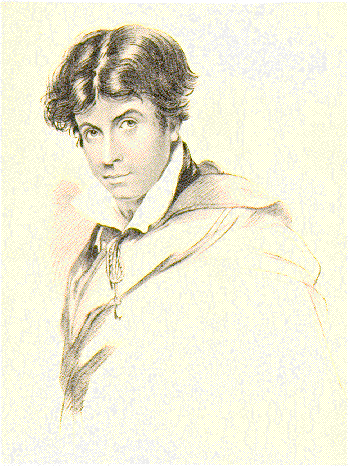 |
 |
 |
 |

From the beginning, even in his first volume, Juvenilia (1801), his poems reveal a love for Italian literature. He looked to Italy, he said, for a "freer spirit of versification," and in The Story of Rimini (1816), published in the year of his meeting with Keats, he reintroduced a freedom of movement in English couplet verse lost in the eighteenth century. His unapologetic delight in color and imaginative sensual experience, which owed much to Italian poetry, had a pronounced impact on his poet friends, especially Keats. From this introduction Keats derived his own interest in Italian poetry, and it remained a potent influence long after he had outgrown Hunt's tutelage.
In 1808 Leigh Huntand his brother John had launched a liberal weekly newspaper, The Examiner, which advocated abolition of the slave trade, Catholic emancipation, and reform of Parliament and the criminal law. For their satirical treatment of the unpopular Prince Regent, the brothers were imprisoned in 1813.. When Leigh Hunt continued to write The Examiner in prison, he was widely celebrated as a martyr in the cause of liberty. After his release in 1815 he moved to Hampstead, at that point a village to the north of London, where he was the center of a coterie of young figures on the literary scene, frequently visited by Percy Bysshe Shelley, whose acquaintance he had made as early as 1811, and by Mary Godwin. It was Hunt who introduced them to John Keats in 1817, while Mary was at work on Frankenstein. Hunt's championing of Keats in The Examiner prompted attacks by the conservative Blackwood's Magazine (though they generally supported the Shelleys), who dubbed this group "the Cockney School of Poetry."